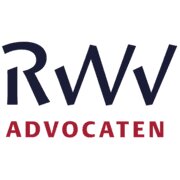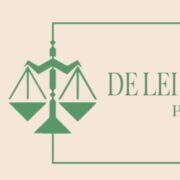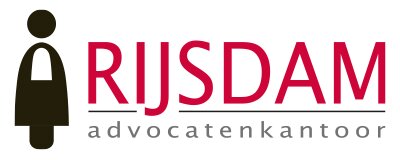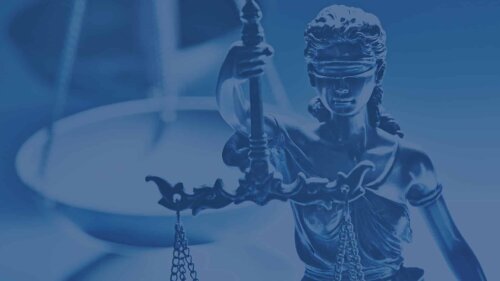Best Child Abuse Lawyers in Leiden
Share your needs with us, get contacted by law firms.
Free. Takes 2 min.
Free Guide to Hiring a Family Lawyer
List of the best lawyers in Leiden, Netherlands
About Child Abuse Law in Leiden, Netherlands
Child abuse is a serious concern in Leiden and throughout the Netherlands. It includes any form of physical, emotional, or sexual harm, as well as neglect or exploitation, inflicted upon a minor under the age of 18. The Dutch government and local authorities take child abuse very seriously and have set up specific procedures, agencies, and laws to protect children and prosecute offenders. In Leiden, child abuse cases are handled by specialized police departments, social services, and the courts, all working together to prevent harm and ensure the well-being of children.
Why You May Need a Lawyer
If you are involved in a situation concerning child abuse, whether as a victim, parent, accused individual, or concerned third party, legal assistance is crucial. A lawyer can help you understand your rights, navigate complex legal procedures, and ensure your interests are protected. Common reasons to seek legal help in child abuse cases include defending against false allegations, reporting suspected abuse, dealing with investigations by child protective services, protecting your children’s welfare during custody disputes, or seeking compensation for damages suffered as a result of abuse.
Local Laws Overview
The Netherlands has strict laws regarding child abuse, enforced under the Dutch Criminal Code and Youth Care Act. Key aspects include:
- Mandatory reporting - Certain professionals such as teachers, doctors, and social workers are required by law to report suspected child abuse.
- Investigative authority - The police and Child Protection Board (Raad voor de Kinderbescherming) are authorized to investigate allegations and take protective measures, such as temporarily removing a child from their home.
- Criminal prosecution - Perpetrators of child abuse can face severe penalties, including imprisonment, fines, and being placed on offender registries.
- Family court involvement - Courts can impose protective orders, custody changes, and supervised visitation if child welfare is at risk.
- Confidentiality - Strict privacy laws apply to child abuse investigations, but exceptions are made to protect the child’s safety and well-being.
Frequently Asked Questions
What counts as child abuse in Leiden?
Child abuse includes physical violence, emotional or psychological harm, sexual abuse or exploitation, neglect of basic needs such as food, shelter, and medical care, and exposing a child to dangerous situations.
Who is required to report suspected child abuse?
Professionals such as teachers, medical staff, and care workers have a legal duty to report suspicions of child abuse. However, anyone who suspects abuse can make a report.
How do I report suspected child abuse?
You can contact Veilig Thuis, the national advice and reporting center for domestic violence and child abuse, or inform the local police in Leiden. They will start an investigation and provide support.
What happens after I report child abuse?
Authorities such as the Child Protection Board and police may investigate. Based on their findings, measures can include family support services, supervision orders, or temporary removal of the child from their home.
Can I remain anonymous when reporting child abuse?
Yes, it is possible to report anonymously, especially if you are concerned for your own safety. However, providing your details can sometimes help with the investigation.
What legal rights do accused individuals have?
Everyone has the right to a fair investigation and legal representation. If you are accused, a lawyer can help you defend your rights and respond appropriately to allegations.
How are children protected during investigations?
Interviews with children are conducted by specially trained professionals. Courts and authorities aim to minimize trauma and keep the child's best interests at the forefront.
Can child abuse affect custody arrangements?
Yes, evidence or suspicion of abuse can lead to changes in custody, supervised visitation, or even termination of parental rights to protect the child’s safety.
What penalties do perpetrators face?
Penalties for child abuse can include significant prison sentences, fines, restrictions on contact with children, and mandatory rehabilitation programs.
Can victims of child abuse receive compensation?
Yes, victims can pursue compensation through civil claims or special government compensation funds designed for victims of violent crime and abuse.
Additional Resources
For those seeking help or more information about child abuse in Leiden, the following organizations and resources can be valuable:
- Veilig Thuis - The national center for advice and reporting on domestic violence and child abuse.
- Child Protection Board (Raad voor de Kinderbescherming) - Manages protection measures and acts in the interest of children.
- Leiden Youth Care (Jeugdzorg) - Provides social services and family support in child protection cases.
- Dutch Police (Politie) - Handles criminal investigations of abuse allegations.
- Local legal aid offices - Offer legal advice and representation for those who cannot afford private lawyers.
Next Steps
If you need legal assistance in a child abuse matter in Leiden, you should start by seeking advice from a specialized lawyer with experience in child protection cases. You can contact local legal aid services or private law firms for consultations. Gather any relevant documents or evidence, and write down important details about the situation. If you believe a child is in immediate danger, contact the police or Veilig Thuis straight away. Remember, taking prompt action and obtaining professional legal support will help ensure your rights and the safety of the child are protected.
Lawzana helps you find the best lawyers and law firms in Leiden through a curated and pre-screened list of qualified legal professionals. Our platform offers rankings and detailed profiles of attorneys and law firms, allowing you to compare based on practice areas, including Child Abuse, experience, and client feedback.
Each profile includes a description of the firm's areas of practice, client reviews, team members and partners, year of establishment, spoken languages, office locations, contact information, social media presence, and any published articles or resources. Most firms on our platform speak English and are experienced in both local and international legal matters.
Get a quote from top-rated law firms in Leiden, Netherlands — quickly, securely, and without unnecessary hassle.
Disclaimer:
The information provided on this page is for general informational purposes only and does not constitute legal advice. While we strive to ensure the accuracy and relevance of the content, legal information may change over time, and interpretations of the law can vary. You should always consult with a qualified legal professional for advice specific to your situation.
We disclaim all liability for actions taken or not taken based on the content of this page. If you believe any information is incorrect or outdated, please contact us, and we will review and update it where appropriate.













